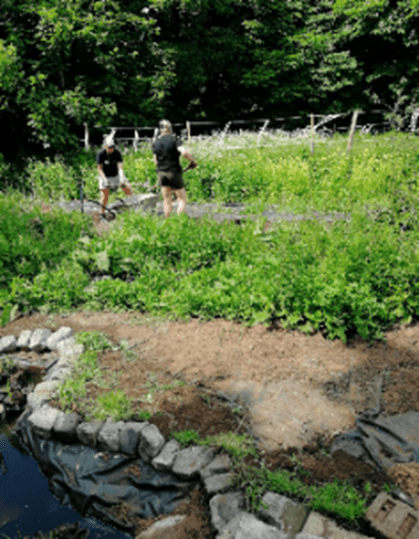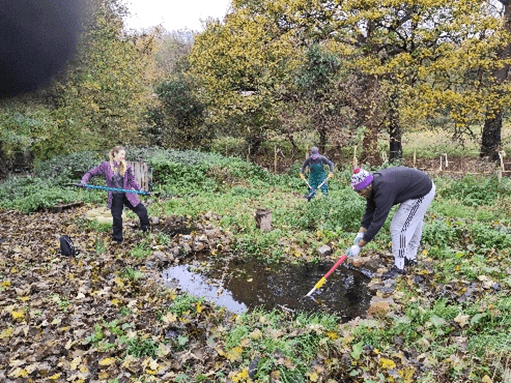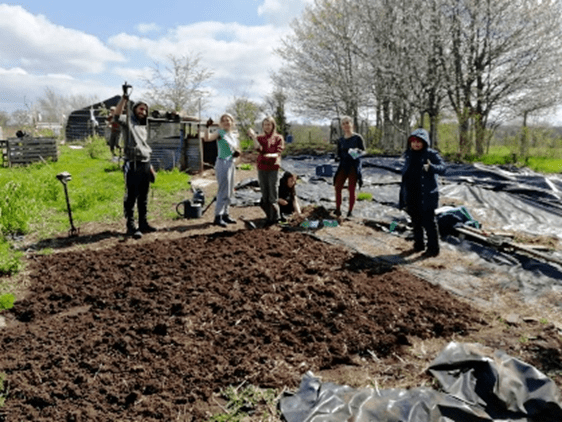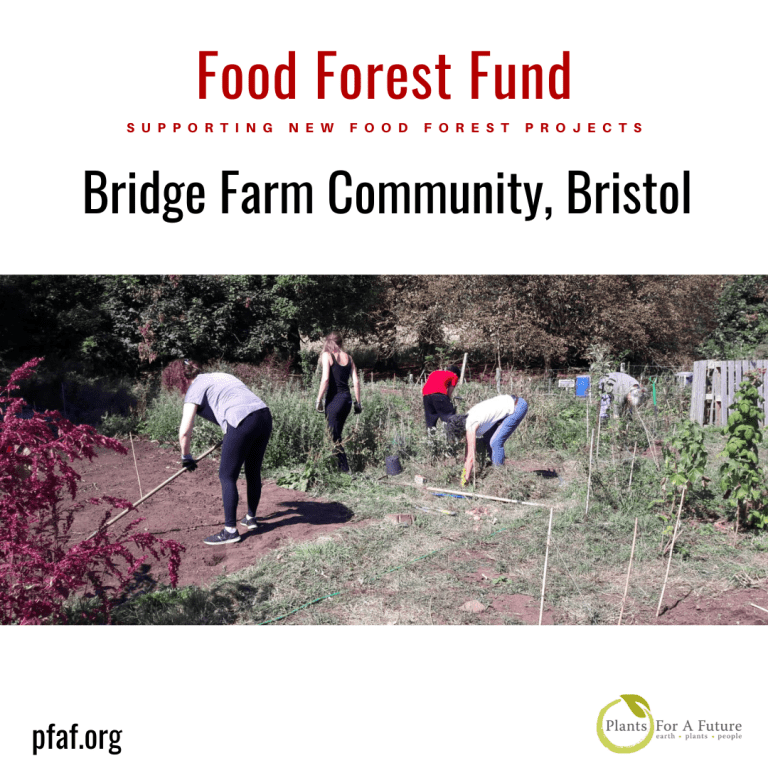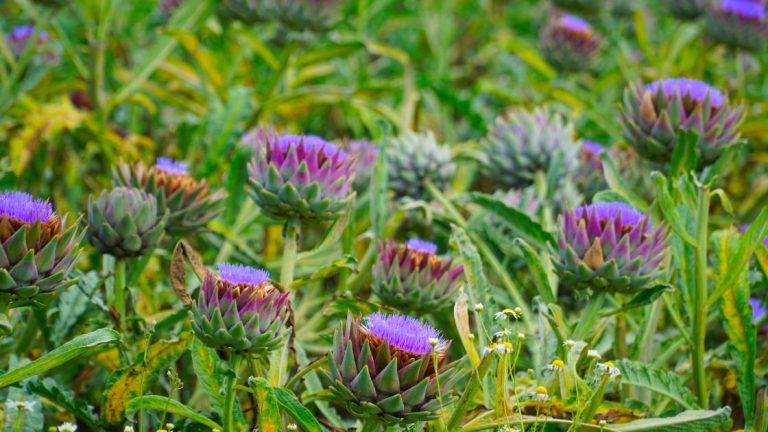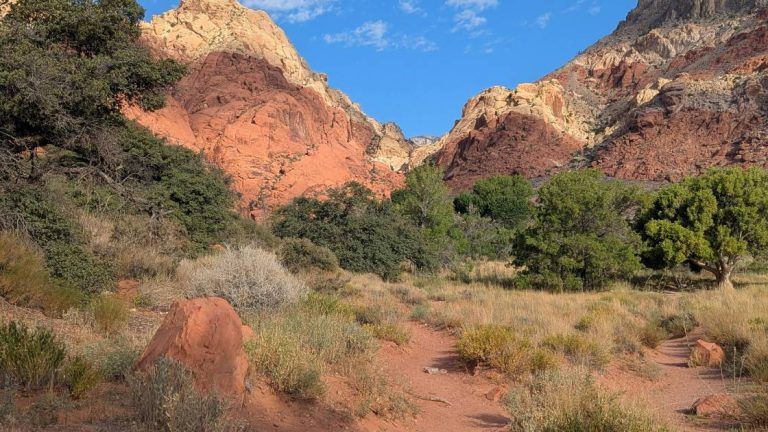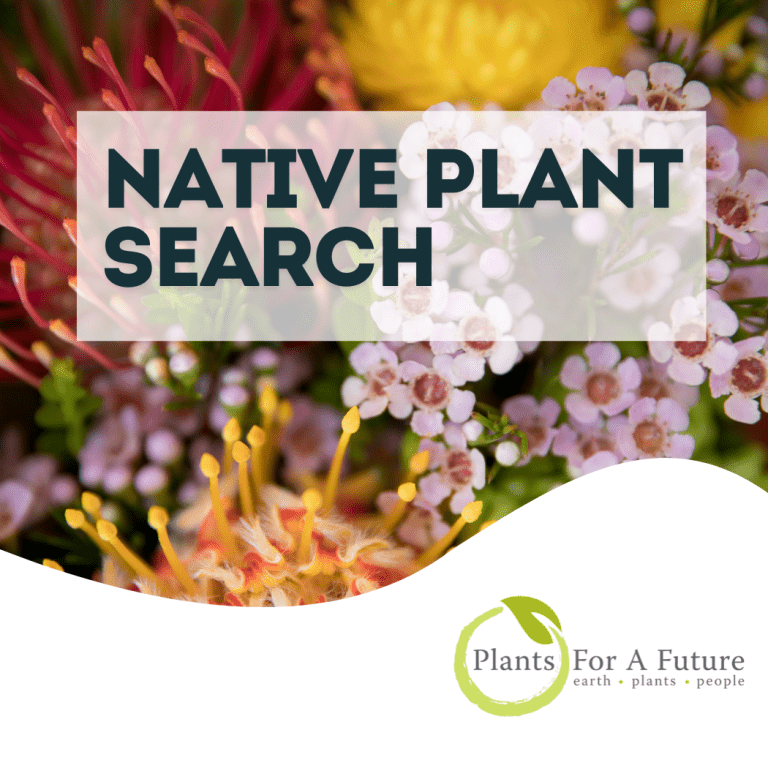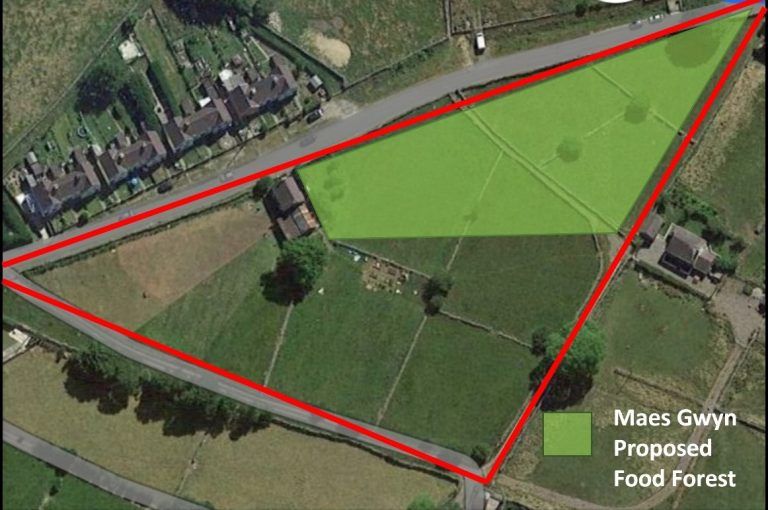In August 2022 we awarded the Bridge Farm Forest Garden a grant towards the costs of the next stage they had identified: preparation of a detailed site plan, more weed elimination and control, constructing a pond and a small shelter, and obtaining and planting more edible perennials. At that time Ana and Jules, the joint project leads, estimated that it would take two years to complete the construction of a pond and a small shelter and to complete the initial phase of plantings, while continuing to maintain the existing structures and areas already planted.
No-one involved with the project lives on site or visits very regularly, so progress has largely dependent on what can be achieved during monthly volunteer work days. This is certainly a restricting factor, but since the progress report in November 2022 (see Blog history) there has been steady progress. Ana and Jules have remained strongly committed the project – prepare regular detailed progress reports, and have made links with and sought help and advice from various groups and individuals in the Bristol area and beyond. The numbers of volunteers varies, but in good months 10 or 12 people come, get to work enthusiastically, often say they have learnt new skills, and quite a lot gets done. The project leads are now thinking of merging the Forest Garden monthly volunteer workday with the more general Bridge Farm volunteer workdays that take place very fortnight. They will try this out for a few months to see if it provides more volunteer time.
Back in December 2022 Jules met with students on a Bristol SHIFT permaculture design course, after which the students spent two days researching and analysing the current state of the project and collated their findings with helpful suggestions for how to proceed. These related to maintaining soil health, planting according to a seasonal schedule and guidance on other jobs such as composting that could be undertaken throughout the year. One continuing issue is whether to construct a more secure barrier to keep out deer, who have probably got in and eaten valuable plants at some times in the past.
In February 2023 Tessa Tricks, a Bristol-based garden and landscape designer, who was working towards Permaculture Diploma qualification, prepared a site analysis and a detailed map of the existing plants in order to advise on other plants to include, based on soil type and aspect. This work, which Tessa undertook free of charge, informed decisions on further purchases during this year. To spread the work and the available budget over time small numbers of plants have been ordered from several different suppliers, which has also helped the team to decide who best to buy from in future. Their careful use of funds has meant that they have still not spent all of the 2022 grant.
These are some of the plants purchased this year: Gage (Prunus domestica) Oullins Golden Gage, Medlar (Mespilus germanica) Royal, Groundcover Raspberry (Rubus pentalobus) Emerald Carpet, Reichardia picroides – perennial salad leaf, Turkish rocket – Bunias orientalis, Gynostemma pentaphyllum – sweet tea vine, Seombadi – perennial Korean celery, Sea beet – Beta vulgaris maritima.
In the spring Ana and Jules began sowing seeds of various species in a shared on-site greenhouse for their new commercial perennial vegetable venture called Vibrant Veg; some plants not sold this season were donated to the forest garden. Preventing fast growing weeds from overwhelming new plantings and obstructing pathways has been a concern. Until recently quite a lot of Mypex weed control membrane was in place across the site, but this has now been largely eliminated as more green manure and edible perennials have been planted where it has been removed, and chop-and-drop of green manure and weeds has been adopted. Following its creation in October 2022 the pond has also had a lot of attention, now looks good, the aquatic plants are thriving, and it is ready to attract wildlife.
